Lantern Tour of the McMullen House Neighborhood
Enjoy a Lantern Tour of the historic neighborhood that surrounds McMullen House. See the houses of Ida Tarbell, John Fertig, John Mather, George Custer, and others. Most of the houses date from the “Oil Boom” times of Titusville in the 1800s. Lantern Tours are given year-round, weather permitting, and are included with your stay. Those houses with a lantern are discussed on the Lantern Tour.
Caldwell House, c. 1870
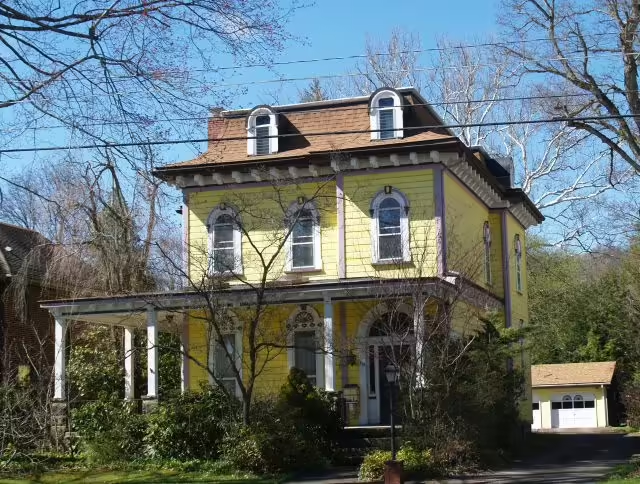
The Caldwell House, located at 310 E Main Street, was owned and built by James H. Caldwell in 1870. It is an example of an Italianate Villa with a mansard roof more typical of the Second Empire style.

John Fertig House, c. 1872
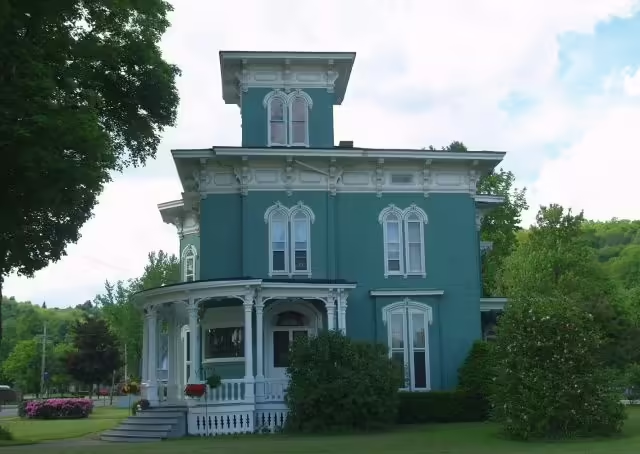
The John Fertig House at 602 E Main Street is a large example of an Italianate Villa. The house is noted for its scrolling and large brackets.

George Custer House, c. 1865
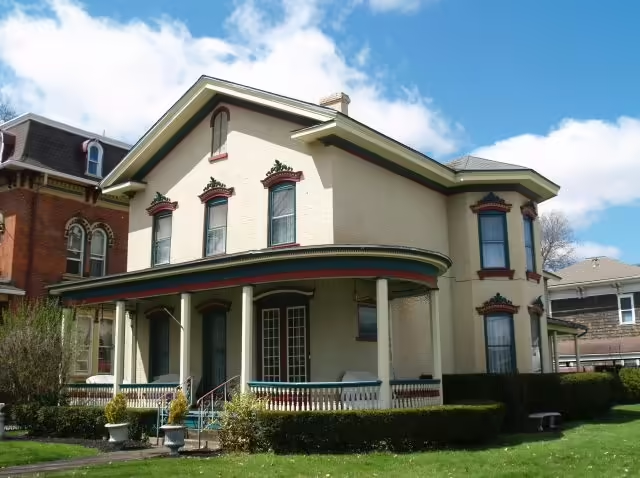
The George Custer House, built by George Custer, is suggestive of Italianate architecture. Mr. Custer was a realtor and oilman during the oil boom period.

John Mather House

John Mather, a noted Oil Region photographer, lived at this house in the late 1800s. The house is located just down the street from McMullen House.

McKinney Hall, c. 1870
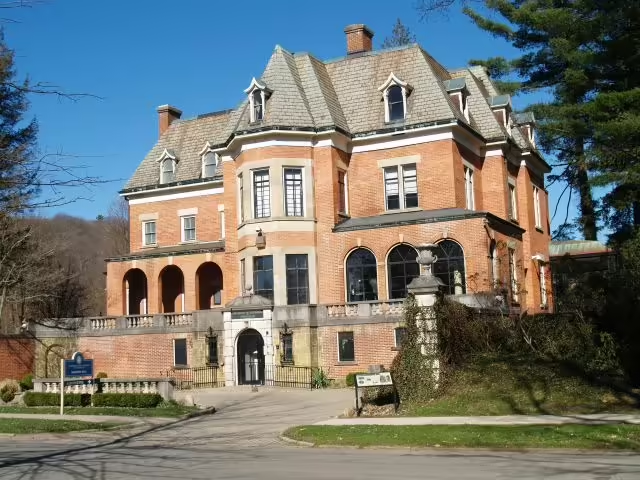
McKinney Hall was built by John C. Bryan in 1870 and then owned by a number of owners after 1872. These owners included William McKinney the namesake of the building. An example of Second Empire architecture with Italianate accents, it is now the administration building for the University of Pittsburgh at Titusville.

William Sterrett House, c. 1871
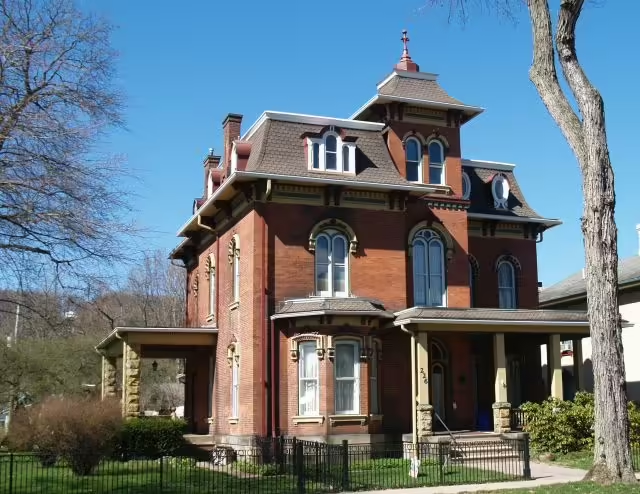
The Sterrett House is example of Second Empire architecture with French accents. It was built by William Sterrett, who manufactured oil field equipment in 1871.

Hyde House, c. 1864
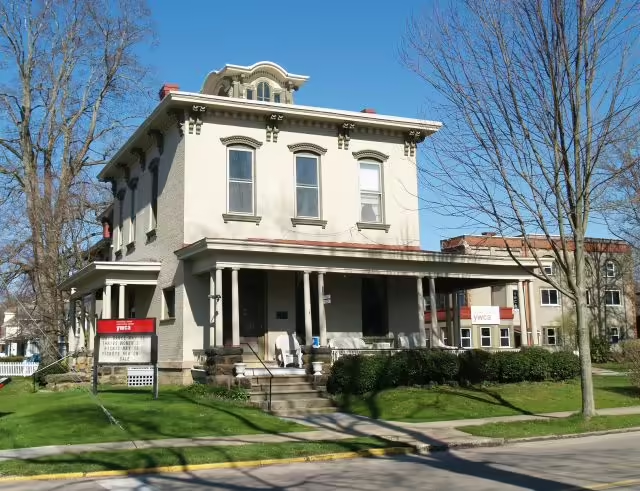
The Hyde House was built by Isaac Canfield and purchased later by Charles Hyde. It is an example of Italianate architecture and is now the home of the Titusville YWCA.
Titusville City Hall, c. 1862
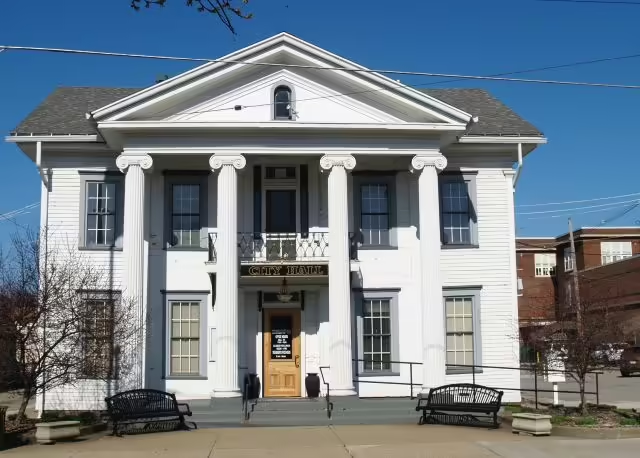
Titusville City Hall was originally built by Nelson Kingsland and is one of the few examples of Greek Revival architecture in Titusville. Originally the Bush House Hotel, it became Titusville City Hall in 1872.
William T. Scheide House, c. 1884
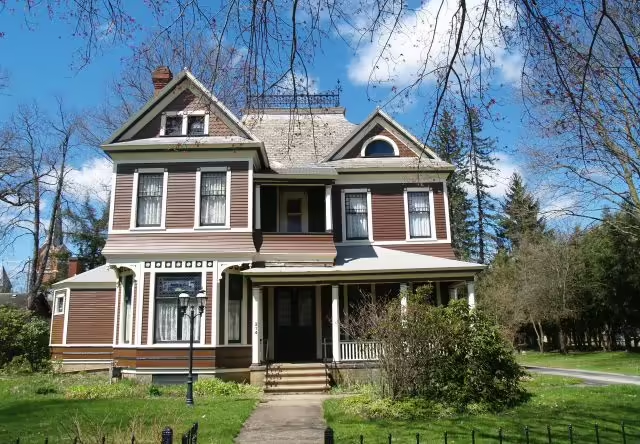
The William T. Scheide House is an example of Queen Anne architecture with a slate roof. The famous Scheide book collection started here and was continued by his son, John. The book collection that included an original Gutenberg Bible is now located at Princeton University.
Isaac Shank House, c. 1906
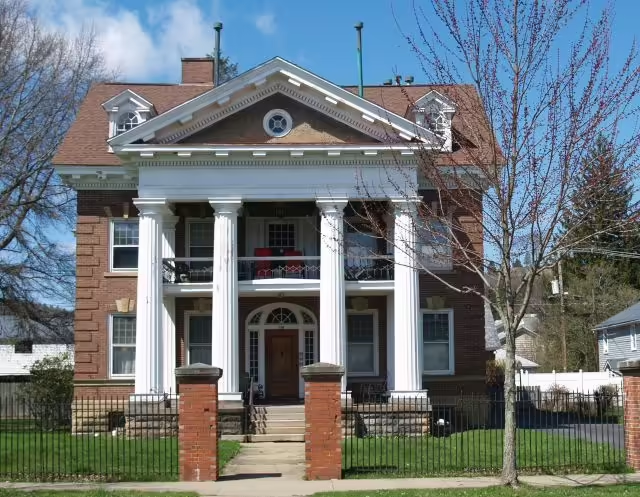
The Isaac Shank House is located at 118 W Main Street. An example of the Colonial Revival style, this house was built by Isaac Shank, who was a merchant and lumberman in Titusville.
Titusville First United Methodist Church, c. 1954
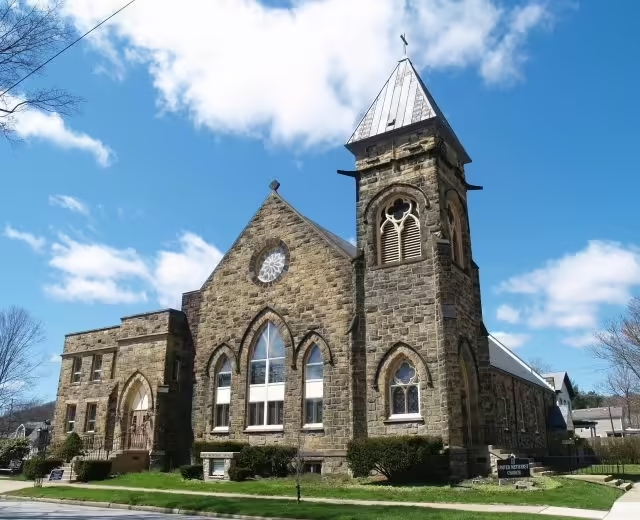
Titusville First United Methodist Church of Titusville, PA was built in 1954, when a previous building was lost to a fire. The current church is an example of Gothic architecture.
First Baptist Church, c. 1865-1868
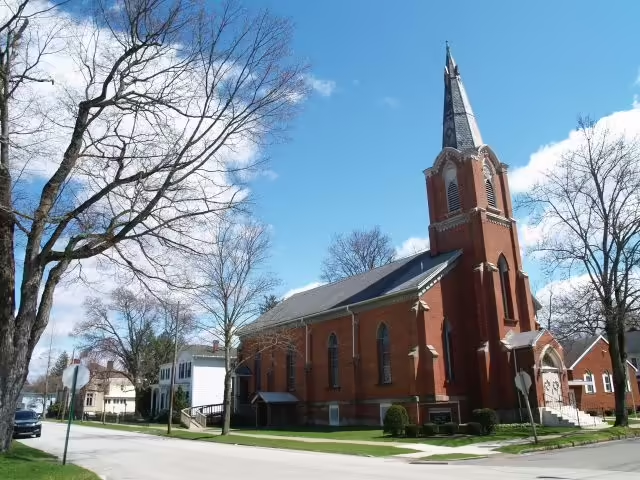
The First Baptist Church of Titusville is an example of Gothic architecture, but unlike others it is built of brick.
Algrunix Building, c. 1894
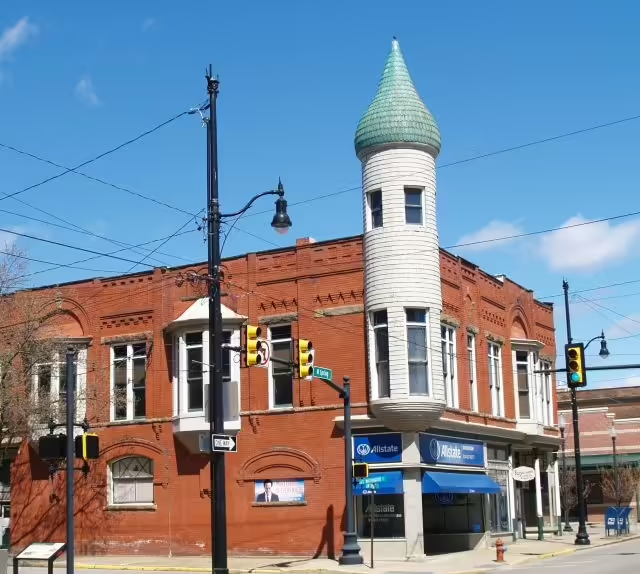
The Algrunix Building in downtown Titusville is an example of Gothic architecture with a distinctive onion top turret. The name comes from the owners’ abbreviated last names.